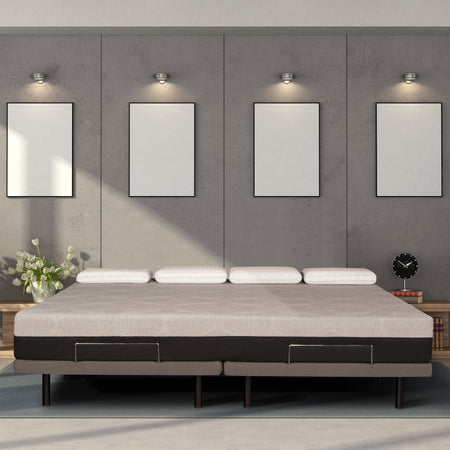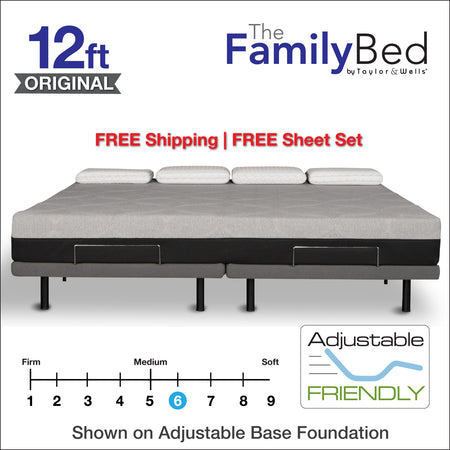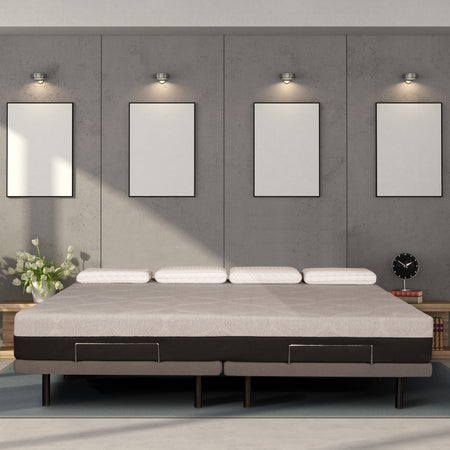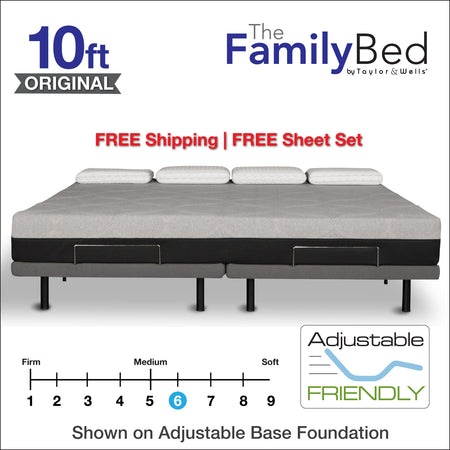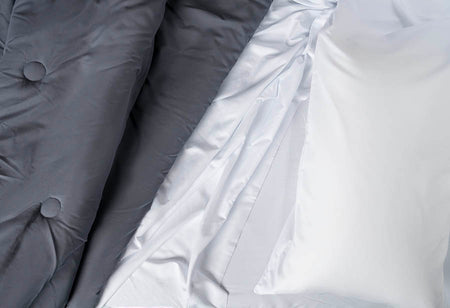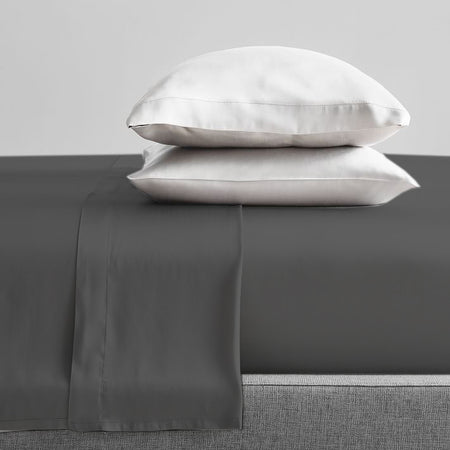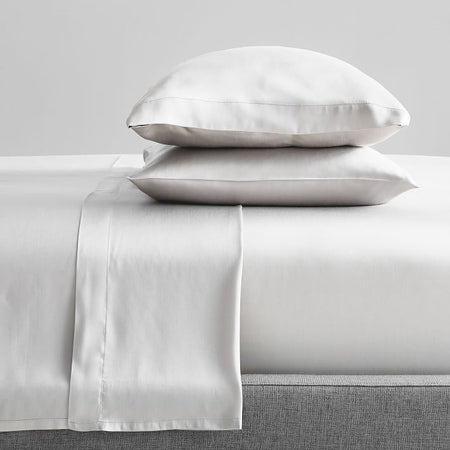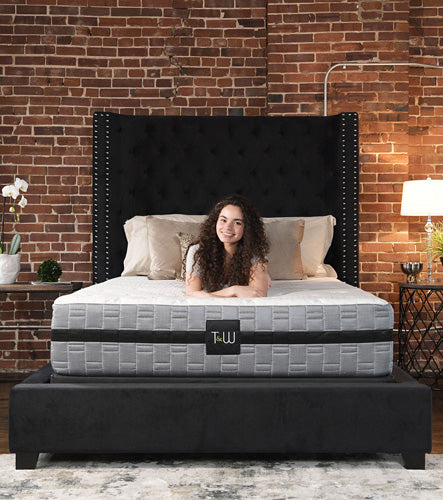Few things are as vital to our overall well-being as a good night's sleep. It rejuvenates our bodies and minds, preparing us for the challenges of the day ahead. Yet, the quality of our sleep depends on many factors, and one often underestimated factor is our mattress. The inner workings of your mattress can significantly influence the quality of your nightly rest.
In this article, we will take a closer look at how the composition of different mattresses impacts sleep quality.

What Makes a Good Mattress?
According to studies, sleeping on a medium-firm mattress improves sleep quality and reduces the risk of developing lower back pain. But it’s important to note that when it comes to finding the right mattress, there’s nothing like one-size-fits-all. So, in a nutshell, a good mattress for you is one that:
- Supports the healthy curvature of your spine
- Offers comfort
- Doesn’t cause you to get too warm
- Fits your budget and other needs
Basically, these are the qualities you should be looking for:
One key quality is mattress support. Proper spinal alignment is crucial for sleep quality. A mattress should provide the support that complements your body's natural curves, ensuring that your spine remains aligned and reducing the risk of back pain.
Comfort is another essential aspect. It involves factors such as firmness, softness, and pressure relief. Comfort is subjective and depends on personal preferences. While some people prefer the plush feel of a foam mattress, others may find innerspring mattresses more comfortable.
Durability is crucial, too. A mattress should withstand years of use without losing its support and comfort. The mattress's ability to isolate motion is also vital, especially for couples, as it minimizes disturbances when one person shifts during the night.
And lastly is your budget. While it's important to stay within your budget, don't compromise on quality, support, or comfort just to save money. Look for a mattress that strikes the right balance between your financial constraints and your sleep requirements.
Mattress Types and What Matters

There are several types of mattresses available, each with its unique composition. The most common types are innerspring, foam, and hybrid mattresses. Let's explore what makes each of them special.
Innerspring Mattresses
Innerspring mattresses are known for their sturdy support systems, which often consist of coil springs and a layer of foam at the top for comfort. They provide excellent support and cooling for most sleepers, especially those who prefer a firmer sleeping surface. However, innerspring mattresses may not be ideal for those who need motion isolation, as they can transfer movement across the bed. They may also not provide the same pressure point relief as foam mattresses.
Foam Mattresses
Foam mattresses use different layers of memory foam and support foam to provide excellent pressure relief and adapt to your body's shape. These mattresses excel in distributing your body weight evenly, reducing pressure points, and enhancing sleep comfort. Foam mattresses are particularly effective in relieving pressure points, which is crucial for people with joint or back pain.
Hybrid Mattresses
A hybrid mattress combines the best of both worlds, often featuring innerspring support systems with memory foam comfort layers. These mattresses offer a balance between support and pressure relief, making them a popular choice for a wide range of sleepers.
The Inner Workings of Your Mattress
Mattress composition goes beyond just the type of mattress; it also includes the materials and technologies used in the mattress layers. Let's explore how these inner workings impact your sleep quality:
Support Core and Spinal Alignment
The support core plays an important part in maintaining proper spinal alignment. If your mattress lacks support, it can lead to discomfort, back pain, and poor sleep quality. Innerspring mattresses are known for their sturdy support, while foam mattresses, especially memory foam, conform to your body's natural curves, ensuring proper spinal alignment.
Comfort Layers and Pressure Points
The comfort layer is the topmost layer of a mattress that directly comes into contact with your body. It is designed to provide a cushioning effect, ensuring that your body feels relaxed and supported while you sleep. However, the level of comfort and overall feel varies based on the composition and materials used in the comfort layer.
A comfort layer can be soft, medium, or firm. It can also be more breathable or less breathable. A quality comfort layer should conform to your body's shape, evenly distributing this weight and reducing pressure on these points. It should also be designed with breathability in mind.
Cooling Technologies for Optimal Sleep
Temperature regulation is crucial for a good night's sleep. Many modern mattresses come equipped with cooling technologies to address this issue. Gel-infused memory foam, for instance, dissipates heat and helps maintain a comfortable sleeping temperature throughout the night. If you're someone who tends to sleep hot, a mattress with cooling technologies can be a game-changer, ensuring you stay cool and sweat-free, even in the warmest of seasons.
Choosing the Right Mattress

Selecting the right mattress is a personalized decision, and it should be based on your individual sleep needs and preferences. Consider the following factors:
- Sleeping Position: Your preferred sleeping position can influence the type of mattress that suits you best. For example, side sleepers may benefit from memory foam mattresses that cushion their hips and shoulders.
- Body Type: Your body weight and type can affect the amount of support and cushioning you need. Heavier individuals may require a firmer mattress for optimal support.
- Budget: Determine your budget and explore options that fall within your price range. Keep in mind that investing in a high-quality mattress can significantly impact your sleep quality and overall well-being.
- Personal Preferences: Consider whether you prefer a firmer or softer mattress. Remember that your mattress should cater to your specific comfort needs.
- Expert Advice: Don't hesitate to consult sleep experts or read reviews to gather information on different mattress options. Expert advice can be invaluable in making an informed decision.


